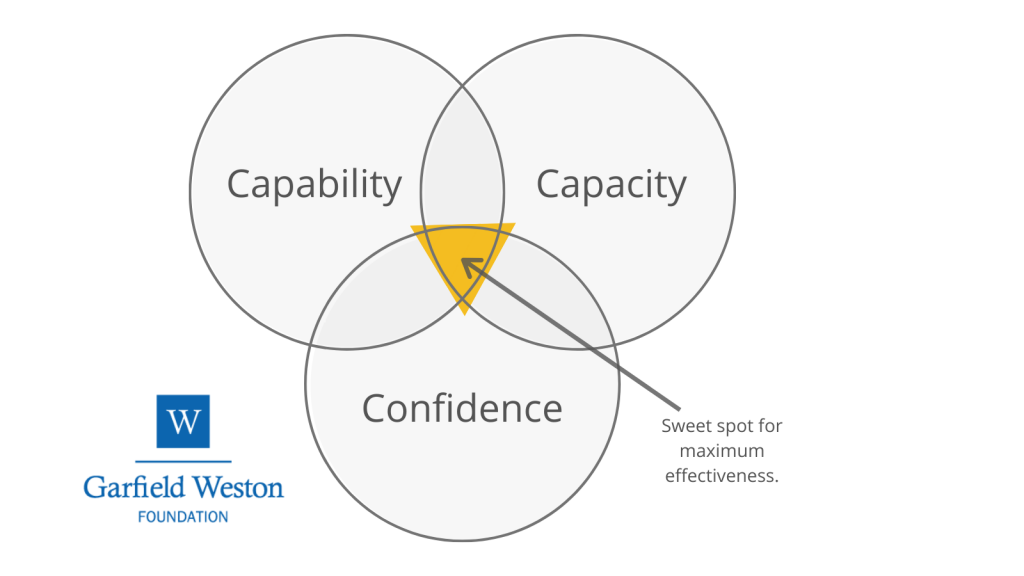Matthew Bowcock reflects on how Covid impacted his 2020 giving.
Garfield Weston: philanthropy through a family foundation
 Philippa Charles is Director of the Garfield Weston Foundation. She explains what motivates the family’s philanthropy.
Philippa Charles is Director of the Garfield Weston Foundation. She explains what motivates the family’s philanthropy.
Quick facts
The causes
- Arts and culture
- Education
- Environment
- Youth
- Welfare.
The funding
- Family foundation, created by the Weston family in 1958.
- Focus on causes with a profound and positive social impact.
- Has distributed over £1 billion in charitable funding.
How the foundation operates
Has the foundation’s strategy changed over time?
Some things have evolved considerably and yet other things remain wonderfully consistent. It’s a blend, really. Ten years ago the foundation was exclusively a responsive funder, but has developed over the past decade with a more blended strategy, including :
- Actively commissioning research where we identify gaps in provision or sector capability, or if there is something we need to understand better as grant-makers.
- Proactively creating a range of partnership programmes to increase the impact of our work,
- Convening conversations and initiating collaborations where it is sensible to do so.
A lot of the developments over the past decade have enabled us to become more proactive and these are complemented by an ongoing approach which is about being responsive to need. This is a strong part of the family’s ethos, and a key motivator for their giving. The foundation holds the view that those closest to the beneficiaries are the experts in an issue – not the funder – and we respect that specialist knowledge.
Is there a common theme that underpins Garfield Weston’s giving?
When you’re a broad funder, as we are, it can be hard for people to see what the common theme might be, but there certainly is one. The first thing is that our activities must meet a clear need and not be a ‘solution in search of a problem’. They must also be high quality. Need and excellence are the benchmarks. Our activities fall into one or more of what we call our Three Cs. These are Capacity, Capability and Confidence.
- Capacity: This is about funding. It is ensuring that organisations have the funds they need to do the things they do well and that will make a difference. Within this, we appreciate the important role that unrestricted funds play in allowing charities to operate effectively and we pay attention to cost recovery on projects.
- Capability: This is about ensuring organisations have the skills, knowledge, and networks they need to maximise their impact. We address this through a range of partnerships we initiated, such as the Weston Loan Programme with the Art Fund, the Weston Charity Awards with Pilotlight and the Weston Communicating Climate programme with the Media Trust.
- Confidence: This is about increasing exposure. In addition to funding and skills, a lot of charity progress comes from people seeing value in the charity’s work. With this in mind, we celebrate charities’ work through an awards programme, with winners receiving extra support from the foundation to increase their impact.
All of our activities tend to sit in at least one of those buckets. But the sweet spot is the part in the middle, where we are helping organisations to do all three.
Note: Property of Garfield Weston Foundation
How does the family make decisions about their giving?
The family works very deliberately in a consensus-based way. This works remarkably well. I think this is because they all respect each other’s different areas of expertise and knowledge. So, everybody has a chance to put their perspective across. And because what we’re looking for is impact, rather than spending a predetermined amount of money on a specific cause, there is flexibility in what the family can accommodate.
The trustees are also prepared to give money to things that they are not personally engaged with, but can still see value in. An example of this could be a specific art form in which some of the trustees may not be particularly interested, but they recognise its social value in engaging others and so they think it is important to support. Over and above their personal interests, the trustees focus on need.
Is the foundation ‘hands-on’ with the organisations it supports?
The level of involvement varies depending on the organisation and what they need. We are very conscious of being a responsible funder and we don’t want to create a lot of extra work for organisations simply by being involved. That said, where we can add additional value, we aim to do so. All our staff and trustees are active volunteers in charities or within their community.
We have a strong belief in being hands-on in the sense that it’s important to understand what it’s like to run a charity and to be involved in the governance issues and the fundraising challenges. Our experience in these areas allows us to understand directly the constraints charities face. This informs our approach, which is to be clear, straightforward and transparent.
What was the impact of Covid on your operations?
As we all know, many effective organisations saw their income decimated while demand for their work and services increased.
In response, the scale of Garfield Weston’s funding increased to a level never before seen in our history. We gave over £95 million during 2020/21. We made sure that we ramped up our giving in line with the growing need out there. Part of this was through a specially-devised £30 million Culture Fund, supporting 100 cultural organisations around the country.
We also did some things that we don’t ordinarily do, like giving money to other grant-makers. Our trustees made a donation of £1 million to the National Emergencies Trust before they launched. Normally we wouldn’t do this because we have direct relationships with organisations who apply to us, but the Covid crisis was a unique situation and we wanted to make sure that small, grassroots organisations had access to funding swiftly – local community foundations played a vital role in this.
We’re also involved with a co-funded partnership with The Fore, for a programme to support BAME-led organisations which are focusing on the most marginalised and disadvantaged. During the pandemic, we all learnt a lot about the disproportionate impact of the pandemic on some members of our society. While Covid was devastating, it did present us with a clear opportunity to rebuild a fairer society.
Advice for philanthropists
What advice do you have for foundations starting out?
For us, what often works really well is to pilot an idea. We’re fans of starting something at a small level, learning from it, adapting our approach and then expanding when we are confident it works. You might have a grand vision, and that’s a good thing, but we find it helps to test different things to inform and evolve your thinking towards that vision.
Also, do what you’re passionate about and what you know about. I get a lot of calls from individuals considering establishing a foundation who are looking for advice. I always say that I’m happy to discuss how we do things, but it is important for them to know that there is more than one way to achieve a goal. We think our approach is effective, and we’re very proud of it, but it’s not the only way. Don’t be afraid to make change happen in your own way.

